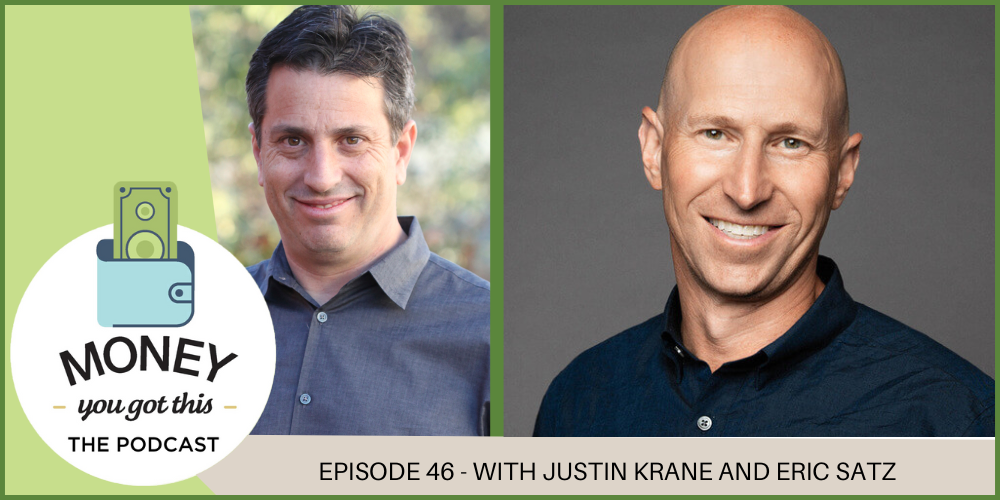Alto Shmalto! Check out my interview with Eric Satz, founder of Alto IRA, a custodian for investors.
Fun times talking with a serial entrepreneur.
Our podcasts are interviews between Justin Krane, Krane Financial Solution’s President, and various professionals, one or more of which are or have been Krane Financial Solutions clients. However, nothing stated within the podcasts should be considered a testimonial or endorsement of Krane Financial Solutions or Justin Krane, and the professionals have not been directly or indirectly compensated for being interviewed.
Our podcasts are interviews between Justin Krane, Krane Financial Solution’s President and various third-party professionals. Noting stated within the podcasts should be considered a testimonial or endorsement of Krane Financial Solutions or Justin Krane, and the professionals have not been directly or indirectly compensated for being interviewed.

An entrepreneur and former investment banker, Eric worked for DLJ/Credit Suisse First Boston before co-founding Currenex, Plumgood Food, and Tennessee Community Ventures, a VC firm. He knows a lot about investing, not just for the wealthy, but for people who are living out their mission. He’s created Alto IRA, a platform for people to invest in 21st century investment opportunities to everyone, even non-accredited investors. Eric served on the Board of the TVA from 2015-January 2019, and he teaches an entrepreneurship class to high school students. A Miami native and diehard ‘Canes and Dolphins fan, Eric went to Amherst College. After years in NYC and then San Francisco, he and his wife moved to Nashville, her hometown, to raise their kids. When he’s not breathing life into startup companies, Eric loves to ski, play soccer, and practice yoga.
**SCROLL TO THE BOTTOM FOR THE VIDEO!**
How Eric Found His Vision
- Eric wanted to utilize retirement income for long-term investments but could not find a way to do so, even though it is legal.
- This led him to discover the self-directed IRA industry.
- There are nearly 30 trillion dollars sitting in retirement accounts and less than 2% is invested in alternative assets.
- The reasons people do not invest their retirement funds are: They don’t know it is possible, it seems too complicated, and they can’t find a custodian to execute an alternative transaction, and the price.
- The JOBS Act and Title III allowed everyday people to participate in private equity opportunities that are listed on SEC, FINRA approved platforms.
Trusting Your Decisions
- Early stage investing is different from private equity investing. With private equity there should be real fundamentals to trust from a due diligence perspective.
- No one takes their retirement savings more seriously than the individuals who are retiring themselves.
- With the necessary amount of homework to understand the company and platform they’re investing in, the rate of fraudulent experiences will likely be lower than even the public market.
- As far as the IRS is concerned, the money invested is carried at cost until a company has reported an event that justifies an up or down valuation.
Entrepreneurship Ain’t for Sissies
- As a younger business owner, Eric opened up a coffee shop during the same period of time as Starbucks opened, and in a worse location.
- It was the first time he had failed, and he had to deal with the horrible feelings of letting down people who had invested money in him.
- He processed the mistakes, picked himself back up, and figured out what to do next.
- Any business owner who has been in business for more than two years has to have some semblance of resiliency.
- There is a 90% failure rate for business owners in year one, so those who get through are commendable.
- Eric believes most people aren’t missing the resiliency, but they’re missing the fire and motivation to start in the first place.
Best Quotes:
“The only way we’re going to change it [the retirement crisis], in my opinion, is by getting Americans access to alternatives so that we can improve the overall performance of everyone’s portfolio.”
“Early stage investing and venture capital investing is different than private equity investing. With private equity, you ought to have a real fundamentals that you can hang your hat on from a due diligence perspective.”
“As long as they do the necessary amount of diligence and homework to understand who it is they’re investing with and what it is they’re investing in, the rates of fraud in my opinion is going to be way lower than even what I think we can expect sometimes in the public markets.”
“There were a number of lessons learned in that process. But the biggest one I would say is that I could dust myself off and stand back up, and figure out what was next and do it again.”
“The hardest thing is to start. The next hardest thing is to survive.”
Connect With Eric

Recent Comments